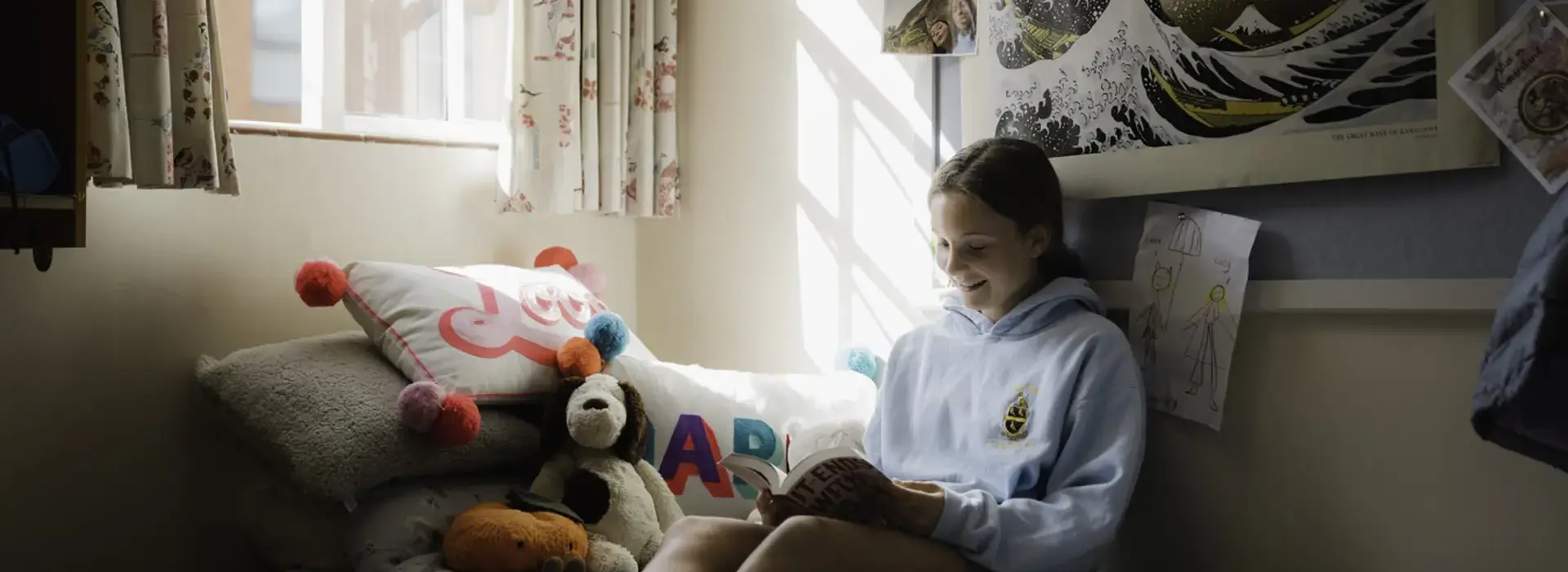
10 TIPS FOR PREPARING YOUR CHILD FOR BOARDING SCHOOL LIFE
Starting boarding school is a major milestone for both children and parents. It’s a step towards independence, personal growth, and new opportunities, but it also comes with emotional and practical adjustments. With the right preparation, pupils can thrive from the very start.
apply to repton prep (AGE 3-13)
This guide offers practical, emotional, and logistical advice to help make the transition as smooth and positive as possible.
1. Talk About What to Expect
Be honest about the realities of boarding life - from shared living spaces and structured routines to the excitement of independence and new friendships. Encourage your child to share their feelings, whether they’re excited, nervous, or a bit of both. “The best preparation you can give your child is open, ongoing conversation. Let them ask questions and express worries,” advises the Boarding Schools’ Association (BSA).
2. Involve Them in the Process Early
Involving your children in the decision-making process establishes a sense of agency, builds confidence and makes them feel invested in their new school. Browse school websites together and encourage your child to start following prospective schools on social media – that way they can gain a feel for the place and will be better able to choose a school that aligns with their own personality and strengths.
3. Visit the School Together
Seeing boarding houses in action and speaking to current pupils makes them far less daunting.
The BSA found that 78% of parents visited at least two boarding schools before making their choice, highlighting the value of in-person impressions (BSA Parent Survey, 2023). Personalised visits at Repton include a full House tour and the opportunity to have lunch in the boarding house with their future peers and Houseparents.
4. Start Practising Independence and Routines at Home
Encourage your child to manage their own morning routine, do laundry (although you will have a Matron to lend a hand!), keep their room tidy, and complete homework without reminders. These small habits help bridge the independence gap between home and school.
Familiarise yourself with the boarding house routine and start implementing it at home in advance (consider things like mealtimes and bedtimes) – this will help your child adapt more quickly to the structure of boarding school life. According to a study published in the Journal of Child and Family Studies, proactive preparation significantly reduces the intensity of homesickness during the first term (Thurber & Walton, 2012).
5. Establish Good Communication Habits
Discuss when and how you’ll keep in touch as a family. Too much contact in the first few weeks can slow adjustment, while too little can feel isolating. The key is finding a balance that works for your child. Mobile phones have made it easier than it has ever been to stay in touch with family and friends, however you must be mindful of your school’s policies around mobiles and social media.
6. Write a Packing List Together
Read through the information supplied by the school and start to write a list of essentials to pack. You will need the basics like uniform and toiletries, but boarders will also be able to pack comfort items for their rooms like family photographs, a favourite blanket, or decorative items to make their surroundings feel more homely. Check the school’s guidelines so you avoid packing prohibited items.
7. Discuss Homesickness Openly
Reassure your child that homesickness is completely normal and most pupils experience it at some point. The Housemaster/mistress will encourage your child to stay busy during the day and there will be an abundance of activities to occupy boarders at the weekend. Evenings and nighttime are usually when emotions run high, but rest assured that Houseparents and Matron will always be on hand to offer support and a comforting hot chocolate!
8. Reinforce the Positive Aspects of Boarding
70% of Repton’s community are boarders, staying at school over the weekend. This allows pupils access state-of-the-art facilities and extra-curricular provision at almost any time. Boarding schools are tight-knit communities and a hive of activity with societies, sports teams, music groups and much more to get involved in. Boarders also benefit from high levels of pastoral care with Repton placing utmost importance on individual needs and collaboration with parents.
For the youngest members of the community, flexible boarding offers a secure environment in which to socialise and benefit from the full school provision whilst full boarding at senior school is the perfect introduction to life at university, preparing young adults for the real world.
9. Reassure, But Don’t Over-Promise
Avoid blanket reassurances like “you’ll love it” or “everything will be fine.” Instead, talk about resilience, new experiences, and highlight the school’s support systems and who to turn to for help. Repton has a dedicated Pupil Wellbeing & Mental Health Lead, as well as a professionally staffed Medical Centre, and encourages a culture of peer support in which school prefects receive training to be watchful and supportive eyes around the boarding house and wider school.
10. Stay Positive on the First Day
Say your goodbyes with warmth and optimism but avoid lingering too long. Your confidence will reassure them more than anything else. One of the best ways to settle into boarding house life and make new friends is to get involved in House events – Reptonians love welcoming enthusiastic newcomers!
Every child adjusts to boarding school at their own pace. With thoughtful preparation, emotional support, and the right environment, boarding can become one of the most rewarding experiences of their lives.
Contact our Admissions team to find out more about boarding at Repton.










